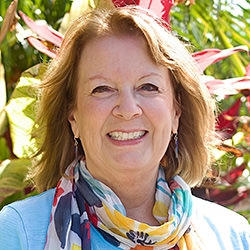
NVC Resources on Trust
-
When avoidance coping or positive thinking sidesteps challenges, internal and external injustice and unrest also rises as we sidestep our values and integrity. It leaves us in sadness and distress. What's unacknowledged impacts ourselves and others undesirably. To live nonviolently we need to be in touch with what's real. With resonance we can more likely be with what's true, and trust our resilience and inner alignment.
-
Trainer Tip: When in a conflict that doesn’t seem to have a solution being aware of your needs, and then being creative and flexible about getting them met, can go a long way to coming up with creative solutions that work for everyone.
-
In a workshop, a hesitant white neurodivergent man faced a triggering reaction from a Global Majority transgender man. Uncovering their backgrounds, the facilitator addressed family dynamics and exclusion. A repair exercise fostered empathy, challenging assumptions and emphasizing the importance of equitable facilitation for a richer group experience.
-
What does nonviolence have to do with group facilitation?
Miki Kashtan believes that nonviolence is a way of being and living that orients us in all our thoughts, words and deeds toward the integration of truth, love and courage. All nonviolent individual and collective actions are aimed at preserving what serves life and challenging what does not. Facilitation is one clear path for bringing nonviolence to the world!
How can we act now, as facilitators, as if the world of our dreams, the Beloved Community, is already in place?
-
How can Nonviolent Communication (NVC) create more constructive conversations in the workplace? This video explores the key difference between calling someone in and calling them out, emphasizing the power of care over annoyance.
-
Trainer Tip: Could you tell me something I do that meets your need for love?
-
Try this four step exercise for making connection requests to support understanding, and to learn what effect your words had on the listener. In this exercise you'll choose a situation where you have clarity about what outcome will really work for you (your solution request), but where you imagine your desired outcome may not work for the other person, and/or are not sure there is sufficient connection for mutual trust.
-
When speaking to decision makers about social change issues it helps to communicate with compassion, clarity, curiosity, calm, and respect while seeking to understand their needs. This way there’s a better chance for more trust and connection that’s crucial for a win-win strategy to come about. This may take several conversations.
-

Communicating with a client or patient with a mental health diagnosis can be tough. This guidebook introduces Nonviolent Communication, helping you develop more clear, compassionate, mutual satisfaction and potentially create conditions that heal those who look to you for help. With this guide learn to notice when your approach is likely to trigger defense and how to shift that to more authenticity, understanding and trust.
-
Listen in as Mary deftly blows the role of facilitator wide open in this excerpt from her very popular 2021 course, Facilitate NVC Groups with Joy and Confidence. She also covers a variety of useful tips such as what to do if you feel lost or confused, how to trust your gut, and ideas around utilizing empathy for yourself!










